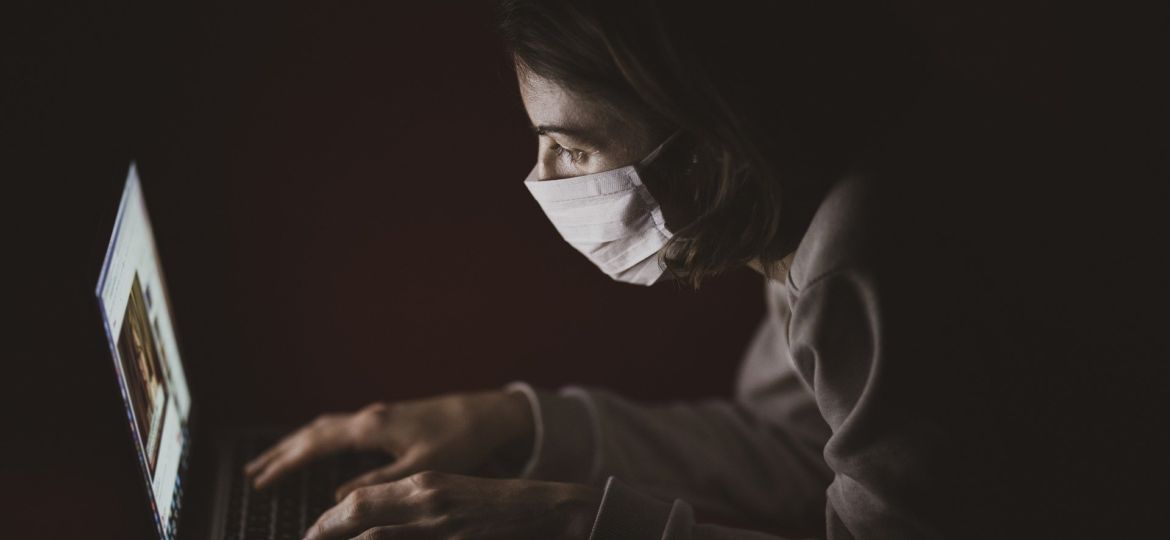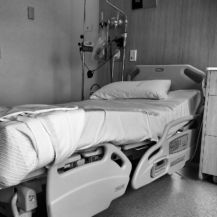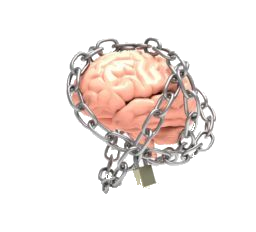
The following essay was submitted to a competition on the theme of Covid-19 and its impact on ones clinical practice.
Introduction
The past year has been the most difficult of my (short) career. Worse than the twelve-hour medical on-calls where I juggled nine wards, an arrest bleep and endless calls about low blood pressures and high heart rates. Worse than the night shifts in A&E where I was racially abused, shouted at and spat on by patients. Worse even than my orthopaedic job where I spent five hours holding a large, metal contraption while my consultant hacked bits of bone into my (shielded) face.
The past year I have been working in Psychiatry during one of the most tumultuous periods of people’s lives. I’ve been emotionally drained as I’ve spoken to patients who have lost their livelihoods, their jobs, their security and every form of human touch. Psychiatry, like all medical specialities, deals with the vulnerable and distressed but the past year has exposed me to a form of emotional distress that I was not prepared for. The COVID-19 pandemic broke down societal structures and regular routine. It broke our days into countless hours watching the news and our nights into fears for our loved ones and our friends. These broken lives were left for Psychiatry to pick up and mend together in a world that had itself become fragmented. No amount of antidepressant would help someone see their family again or bring food on the table. No amount of therapy would bring a loved one back from the dead. In the past year I have witnessed a rising level of anguish and loss that I did not learn about in textbooks or the CASC exam. Yet despite this difficult year, I have come away learning lessons that would have taken my entire career in a non-covid world.

Mental Health is everyone’s business
The pandemic has affected people across the country regardless of age, gender, race or wealth (1). There are of course disparities in who is more at risk of catching the illness and who is more likely to struggle in times of uncertainty (2), but everyone’s life has been disrupted. People who previously had no mental health problems have become increasingly susceptible to developing mental illness during the pandemic (2) and this is why the last year has been such a challenging yet insightful experience.
In the past year I have met a greater diversity of people than ever before. The pandemic has revealed how our mental health is so closely tied to our loved ones and our livelihoods, our goals and our desires. When these structures of our life are gone every level of society is shaken. In the last year I have seen the ramifications of community centres that have closed and local groups that have been disbanded; thousands of staff left without jobs and thousands of families left without food (3). It has been a learning experience to speak to patients who I might previously have commuted with on the way to work who no longer had a job and whose lives were now filled with their empty days. It has been thought-provoking to speak to bright, intelligent and insightful individuals who because of mere luck, decided to go down one career that led them to redundancy, poverty and a spiral of alcohol and depression while I happened to follow the path that led me to security and stability. How easily the tables could have turned. Such experiences taught me that the line between mental health and mental illness is a line held up by a community that cares, families that give hope to each other and a society that provides its citizens with stability upon which they can build their lives. A mere decision to go down a different career path or to have been born without a loving family or lack of opportunities could easily have led me into the patient’s chair. These insights into the complex intricacies and fortunes of our lives – where we were born, where we grew up, the subjects we studied, the people we met and fell in love with – characterise who we turn to and how we deal with our misfortunes when the world turns upside down. This understanding of the fine line between myself and my patients has taught me how easily mental illness can take over any one of our lives, and the importance of understanding our patients if we are to help them find meaning again.

Getting too close for comfort
This knowledge of the fragility of our mental lives has not been an easy pill to swallow, and one consequence of the pandemic made this a particularly difficult lesson to take in; looking after patients who were ‘one of us’ i.e. healthcare professionals.
The prevalence of mental illness and its stigma within the healthcare professions is well known with greater attempts being made by both individuals and organisations to fight this stigma (4). The pandemic brought me face-to-face with the draining work that we as healthcare professionals undertake and the stability of our own mental health or otherwise. This insight broke down the ‘us and them’ barrier that many of us put up in an attempt to bat away the realities of our patients’ despair. Such a defence is not always helpful and my experience of working in the pandemic as a psychiatrist has allowed me to widen my perspective and see my patients as unique individuals with their own assortment of challenges and joys while still maintaining my role as a clinician; something that I would have previously struggled with in the non-covid world.
In the past year I have met countless healthcare professionals; me in my role as a clinician and they as the patient. Many had no history of mental health problems but the escalating demands of their work in a service that was not prepared to deal with a pandemic and even more unwilling to support its workers took a toll on their mental health. Caring for these individuals who worked so hard to care for others taught me what it meant to be a doctor and what it meant to be a patient. Watching these individuals struggle to accept that they needed help, to be given medication to take, appointments to keep and repetitive questions to answer in a room full of strangers made me realise just how much power one loses when one steps into the role of a psychiatric patient. Invasive questions, horrible side effects and the feeling of being a bag of symptoms and nothing more were just some of the things that were reflected back to me. My desire to treat my patients holistically was limited by my lack of understanding of what it meant to be a patient and was a truly humbling experience Acknowledging the fear, despair and loss that one can feel as one steps into the role of a patient allowed me to change how I speak with my patients in an attempt to balance this hierarchy of power and provide greater respect and dignity to my patients while they go through some of the most difficult moments of their lives.
Conclusion
The COVID-19 pandemic has been a chaotic journey of lockdowns, redundancies, panic-buying, clapping, illness and death. It has also been a learning opportunity that has carved my role as a doctor. It has given me a unique insight into what keeps us alive; not just food and water or a place to sleep but something that makes us get up in the morning and gives us a reason to keep living, whether it be a loved one, a goal, a community or a career. The pandemic has taught me how easily we can dehumanise our patients in an attempt to protect ourselves, but that things do not have to be this way. It has taught me to empower my patients and acknowledge the misfortunes in their lives, to appreciate that mere luck could have put me in the patients chair and that none of us are immune to mental illness. The pandemic has taught me that it is possible to be both a clinician and a human being.
References
1. Serafini G., Parmigiani B., Amerio A., Aguglia A., Sher L., Amore M. 2020. The psychological impact of COVID-19 on the mental health in the general population. QJM: An International Journal of Medicine. 113: 531-537.
2. British Medical Association. 7th September 2020. The impact of COVID-19 on mental health in England; Supporting services to go beyond parity of esteem [Online]. Available at: https://www.bma.org.uk/media/2750/bma-the-impact-of-covid-19-on-mental-health-in-england.pdf [Accessed: 26th December 2020].
3. Department for Environment Food & Rural Affairs. 17th December 2020. Rural Economic Bulletin for England, September 2020 [Online]. Available at: https://www.gov.uk/government/publications/quarterly-rural-economic-bulletin/rural-economic-bulletin-for-england-september-2020 [Accessed; 26th December 2020].
4. Shaukat N., Ali D.M., Razzak J. 2020. Physical and mental health impacts of COVID-19 on healthcare workers: a scoping review. International Journal of Emergency Medicine. 13: 40.














